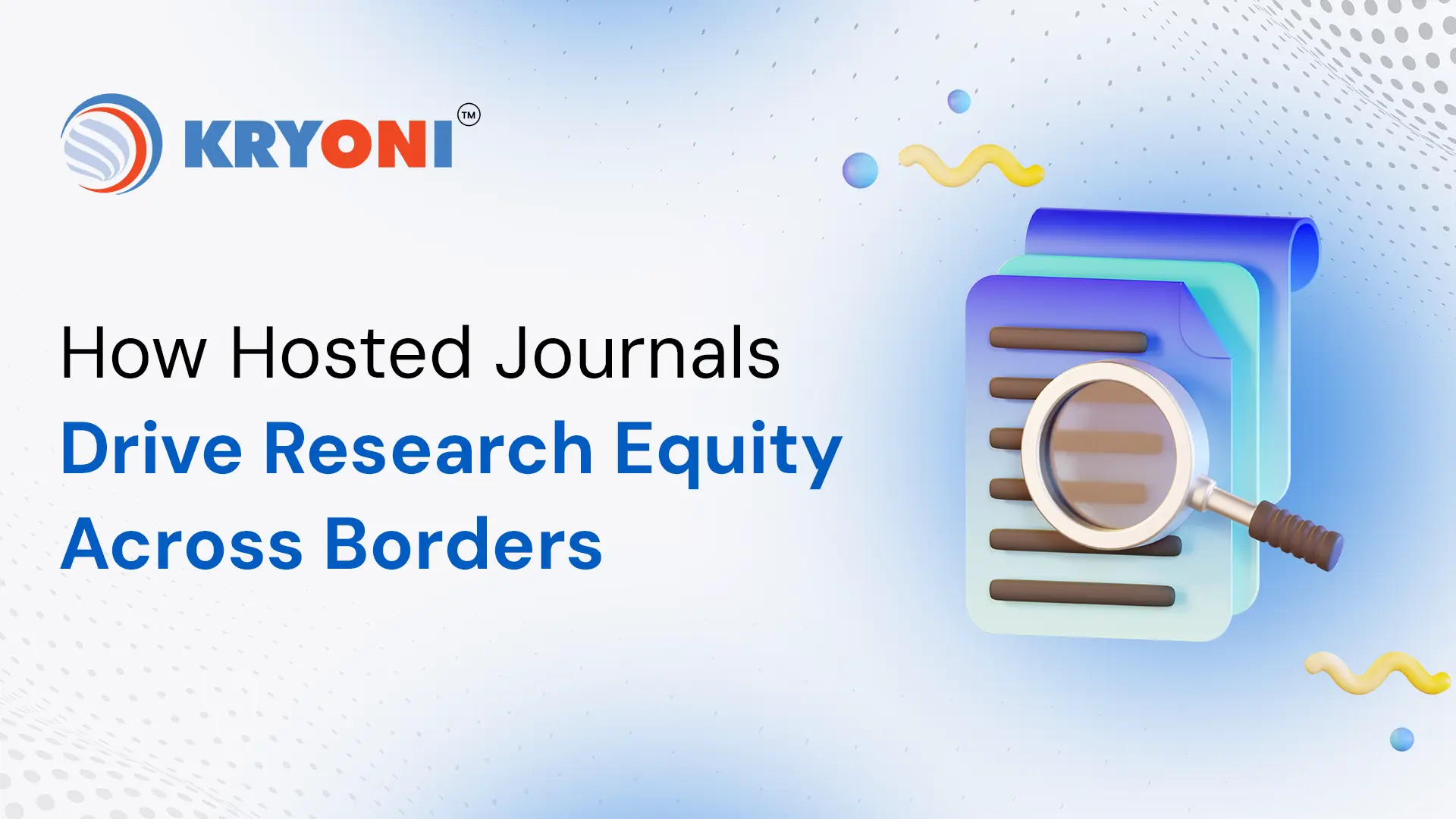
How Hosted Journals Drive Research Equity Across Borders
07 Aug 2025
In the era of global digital transformation, the way research is shared and accessed has undergone a significant shift. Traditional publishing models, often gated by high subscription fees and limited distribution, have contributed to knowledge gaps—particularly affecting researchers in developing regions.
Hosted journals—especially those powered by open access models—are leveling the playing field. By making research more discoverable, accessible, and affordable, hosted journals are bridging the divide between high-resource and low-resource academic environments, ensuring that no scholar is left behind.
What Are Hosted Journals?
Hosted journals are academic publications that operate through online journal hosting platforms. These platforms manage everything from manuscript submission and peer review to digital publication and archiving. The hosting infrastructure is critical to making scholarly content available anywhere, anytime, and often under open access licensing models.
How Hosted Journals Promote Research Equity
-
Open Access and Free Availability
Most hosted journals today adopt open access policies, ensuring that readers anywhere in the world can access published content without financial barriers. This empowers students, educators, and researchers—regardless of geography—to stay informed and contribute to academic discussions.
-
Global Author Inclusion
Journal hosting platforms enable submissions from researchers globally. By removing geographical gatekeeping and streamlining editorial workflows, hosted journals encourage participation from underrepresented regions.
-
Multilingual Support
Advanced hosting systems now support multilingual content, allowing journals to publish in regional languages alongside English. This enhances local knowledge dissemination and improves engagement within specific communities.
-
Reduced Publication Costs
Digital hosting platforms often offer cost-effective publishing models—some even provide free journal hosting for institutions or societies. This minimizes the need for expensive infrastructure, making it easier for emerging publishers to launch scholarly journals.
-
Improved Discoverability
Hosted journals are usually integrated with indexing services like DOAJ, Crossref, and Google Scholar. This ensures that articles by researchers from any region gain global visibilityand citations, increasing their impact.
-
Faster Publishing Turnaround
Automated workflows in hosted systems reduce delays in peer review and publication, allowing quicker access to new research, especially important in areas like public health or climate science.
The Role of Technology Providers
As the demand for equitable access to scholarly content grows, technology providers play a crucial role in enabling and accelerating this transformation. They serve as the backbone of digital journal publishing, equipping institutions, publishers, and researchers with the tools necessary to host, manage, and disseminate content efficiently and affordably.
Here’s how modern technology providers are driving research equity through hosted journal platforms:
-
Providing Scalable Infrastructure
Technology providers offer cloud-based or hybrid journal hosting platforms that scale according to the needs of the publisher—whether it’s a single journal or a large multi-journal portfolio. This ensures that institutions of all sizes, including those from developing countries, can launch and maintain journals without major infrastructure investments.
-
Simplifying Editorial and Peer Review Workflows
Advanced platforms come with built-in editorial management tools, enabling seamless handling of submissions, peer reviews, revisions, and final publication. These tools minimize manual work, reduce administrative burden, and help journals operate professionally even with limited staff.
-
Enabling Global Discoverability
Good technology providers ensure journals are integrated with indexing and metadata services like Crossref, DOAJ, ORCID, and Google Scholar. This increases the visibility and reach of articles, allowing work from underrepresented regions to gain international recognition and citations.
-
Supporting Open Access Publishing Models
Most journal hosting platforms now support Open Access workflows by default, ensuring that content can be accessed without subscription fees.
-
Ensuring Multilingual and Inclusive Access
To support local and global audiences alike, leading hosting platforms offer multi-language interface options, metadata translation tools, and the ability to publish content in diverse languages. This improves participation from non-English-speaking regions and promotes inclusive knowledge dissemination.
-
Enforcing Security, Compliance, and Archival Standards
Technology providers help journals adhere to best practices in digital publishing by offering:
- Secure data hosting and user privacy protocols
- DOI assignment and plagiarism detection tools
These features ensure integrity, longevity, and trust in the content hosted.
-
Reducing the Cost of Entry
Perhaps most importantly, many providers offer affordable, subscription-based or freemium models, which eliminate the need for expensive publishing software or custom development. This democratizes access to technology, enabling institutions from resource-constrained regions to participate in the global academic conversation.
Conclusion
Research equity isn’t just about giving access to information—it’s about creating systems where everyone has a chance to contribute and be heard. Hosted journals are reshaping this landscape by providing the digital infrastructure for inclusive, transparent, and accessible academic publishing.
By breaking down traditional barriers, these platforms are driving a new era of global scholarly equity, where ideas can transcend borders and fuel progress worldwide.
Want to Launch a Global-Ready Hosted Journal?
Stream Space– a powerful and scalable Content Hosting Platform for Journals, designed to meet the demands of modern scholarly publishing.
Contact us today to schedule a demo or learn how Stream Space can help you launch a global-ready journal.